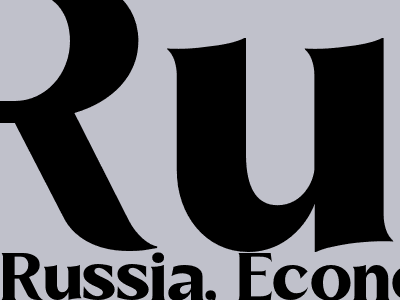
Russia Turns to Barter as Sanctions Bite
Moscow Seeks to Bypass Economic Isolation Through Trade Deals
Introduction
As Western sanctions continue to cripple Russia's economy, the Kremlin has turned to barter as a means of mitigating the impact. Barter, the exchange of goods and services without the use of currency, has become a lifeline for Russia, allowing it to bypass international financial restrictions and secure essential supplies.
In this blog post, we will explore the rise of barter in Russia, examining how it has become a crucial strategy for the country to navigate the challenges posed by sanctions. We will also analyze the implications of this trend for Russia's economy, as well as the broader implications for global trade.
The Rise of Barter in Russia
The imposition of Western sanctions on Russia has had a profound impact on the country's economy. The freezing of Russian assets, the exclusion of Russian banks from the SWIFT system, and the restrictions on imports and exports have all contributed to a sharp decline in economic activity.
In response, Russia has sought to find alternative ways to maintain economic activity. Barter has emerged as a key strategy, allowing Russia to continue trading with countries that are not subject to Western sanctions.
Russia has already signed a number of barter deals with countries such as China, India, and Turkey. Under these agreements, Russia will supply oil, gas, and other commodities in exchange for goods and services such as manufactured goods, food, and medicine.
Implications for Russia's Economy
The rise of barter in Russia has both positive and negative implications for the country's economy.
On the positive side, barter provides Russia with a way to bypass Western sanctions and secure essential supplies. It also helps to reduce the country's dependence on the US dollar, which has been a major source of economic vulnerability in the past.
On the negative side, barter is a less efficient way of conducting trade than using currency. It can be difficult to find trading partners who have the goods and services that Russia needs, and it can be difficult to agree on exchange rates.
Overall, the rise of barter in Russia is a significant development with both positive and negative implications for the country's economy.
Implications for Global Trade
The rise of barter in Russia also has implications for global trade.
If barter becomes more widespread, it could lead to a fragmentation of the global trading system. Countries may be less willing to trade with each other using currency, which could make it more difficult to conduct international business.
It is too early to say whether barter will become a major trend in global trade. However, the rise of barter in Russia is a reminder that the global trading system is not immune to change.
Conclusion
The rise of barter in Russia is a significant development with implications for the country's economy as well as global trade.
As Western sanctions continue to bite, Russia is likely to rely increasingly on barter to maintain economic activity. However, the long-term implications of this trend are uncertain.
Only time will tell whether barter will become a major trend in global trade. However, the rise of barter in Russia is a reminder that the global trading system is not immune to change.